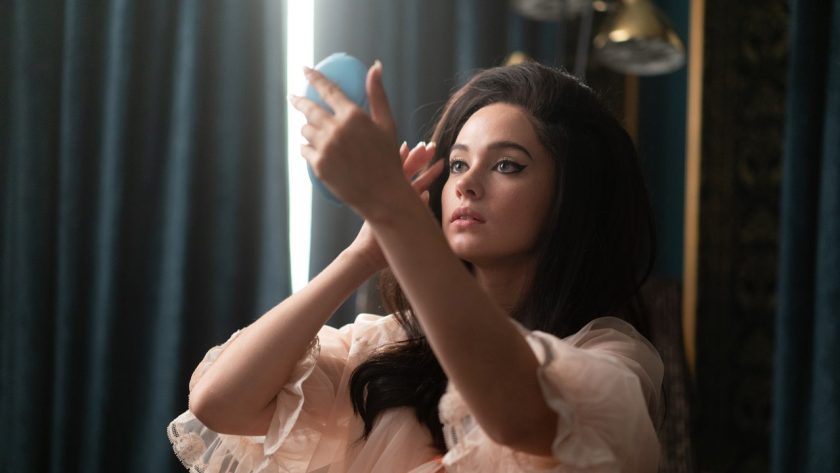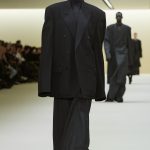Once Priscilla leaves school and grows more outspoken and strong-willed, Elvis laughs off her demands and complaints. He has affairs that he initially denies and admits to only after they’ve ended; and then proposes in the least romantic way imaginable, presenting Priscilla with a ring and telling her, “We’re going to be married.” It’s from this point onwards, though, that the film loses its footing slightly: their wedding flashes by in a breathless montage; Priscilla becomes pregnant; gives birth to their daughter, Lisa Marie; Elvis heads off on an extended tour; and soon, the pair are effectively living separate lives. Before we know it, Priscilla has ditched her cat-eye and let her hair fall into loose curls, embarking on a new chapter in Los Angeles where she learns karate, lunches with new friends, and discovers who she is independent of her husband.
Coppola skips over Priscilla’s brief affair with her dance instructor during this period, one which she herself disclosed in her book, as well as her tryst with her karate teacher, Mike Stone. (The latter appears in the film, played by Evan Annisette, but nothing beyond a friendship is hinted at.) In her memoir, Priscilla went on to write that, after this point in their marriage, Elvis perceived a restlessness in her, requested to see her in his hotel room and “forcefully made love to me (saying,) ‘This is how a real man makes love to his woman.’” (She later added that she regretted her own choice of words and had overplayed that incident.) In the film, Elvis does indeed request to see her and recites this line while kissing her passionately, but when she says no, he relents.
In the next scene, she decides to leave him, but with the omission of so many crucial details, her motivations feel a little muddled. Did the real Priscilla, who served as an executive producer on the film, want these portions of the story removed? Or did Coppola want to present her young heroine as someone pure, who was wholly devoted to Elvis? Either way, I think an exploration of her other relationships and what drove her to them could have added greatly to our understanding of her needs and frustrations.
These sequences are also less effective because Spaeny seems somewhat out of her depth with the more dramatic material. Her outbursts don’t always ring true, and she’s occasionally underserved by lines that feel too on-the-nose. (“Am I losing you to another man?” Elvis asks her, and she replies, “You’re losing me to a life of my own.”) In the film’s quieter moments, however, she’s captivating: when she cheekily cheats on an exam; calls Elvis’s bluff when he asks for time apart while she’s pregnant (when she agrees, he immediately retracts his request); or calmly puts on a pair of fake eyelashes before being rushed to the hospital to give birth.



